By Imaam Yakhsyallah Mansur
بِسْمِ اللَّهِ الرَّحْمَنِ الرَّحِيم
Allah Subhanahu wa Ta’ala says:
اِنَّافَتَحْنَالَكَفَتْحًامُّبِيْنًاۙ١لِّيَغْفِرَلَكَاللّٰهُمَاتَقَدَّمَمِنْذَنْۢبِكَوَمَاتَاَخَّرَوَيُتِمَّنِعْمَتَهٗعَلَيْكَوَيَهْدِيَكَصِرَاطًامُّسْتَقِيْمًاۙ٢وَّيَنْصُرَكَاللّٰهُنَصْرًاعَزِيْزًا٣ (الفتح [٤٨]: ١ــ٣)
Also Read: The Forty-Four-Days of Glory: Azerbaijan’s Struggle for Justice and Peace
“Indeed, We have granted you a manifest victory [1] that Allah may forgive you your past and future sins, complete His favor upon you, guide you to a straight path, [2] and that Allah may help you with a mighty help.” (QS. Al-Fath [48]: 1–3)
Scholars of Tafsir explain that the verses above were revealed after the event of Hudaybiyyah in the month of Dhul Qa’dah in the 6th year of the Hijra. Rasulullah ﷺ, along with about 1,400 companions, departed from Medina towards Makkah to perform umrah.
However, upon reaching the area of Hudaybiyyah (approximately 22 km from Makkah), their journey was blocked by the Quraysh, who refused their entry. This was unprecedented, as no one had ever been prevented from performing Hajj or Umrah since these acts of worship were ordained by Allah Ta’ala.
After prolonged tension and negotiations, the two parties (the Muslims and the Quraysh) agreed to sign a peace treaty that later became known as the Treaty of Hudaybiyyah. The contents of the treaty were:
Also Read: Palestine Solidarity Month: A Collective Movement for Al-Aqsa and Palestine’s Freedom
First, both sides agreed to a ten-year ceasefire. During this period, there was to be no warfare or hostility between the Muslims and the Quraysh. This period of peace provided an opportunity for the Muslim community to live securely, propagate Da’wah without interference, and build strength internally in Medina.
Second, the treaty stipulated that every tribe in the Arabian Peninsula was free to choose which side they wished to ally with or join, either with the Rasulullah ﷺ or with the Quraysh. This led to the formation of power blocs that were regulated peacefully and openly.
Third, any person from the Quraysh who came to Rasulullah ﷺ side without the permission of his guardian must be returned to Makkah. However, if a Muslim went over to the Quraysh, they were not obliged to return him. On the surface, this clause seemed one-sided and detrimental to the Muslims, but Rasulullah ﷺ accepted it with patience and wisdom, as he saw the long-term benefits of the peace.
Fourth, Rasulullah ﷺ and his companions were not permitted to perform Umrah that year. They had to return to Medina without entering Makkah. In compensation, the Muslims were allowed to return the following year to perform Umrah, with the condition that they only stay in Makkah for three days and carry light weapons for self-protection, without displaying military force. The Quraysh also promised to vacate Makkah for those three days to allow the Muslims to perform their worship.
Also Read: Hassan al-Turabi: A Controversial Thinker from Sudan
Fifth, both parties agreed not to betray the treaty and to maintain the security of their respective territories. There should be no deception, violation, or aid to enemies from either side. This commitment to honesty and security became the foundation for the establishment of tranquility in the Arabian Peninsula after years of conflict.
Although it seemed to favor the Quraysh, Rasulullah ﷺ accepted the treaty under the guidance of Allah Subhanahu wa Ta’ala, demonstrating that the mission of the Islamic Sharia was not war, but peace. As was the initial intention, Rasulullah ﷺ came to Makkah with no intention of fighting, but only to perform worship.
Consequently, within two years after the treaty, the number of Muslims grew rapidly. Data shows that the number of Muslims who followed Rasulullah ﷺ entourage during the Conquest of Makkah (Fathul Makkah) was at least 12,000 people (before the Treaty, there were only 2,000).
Furthermore, after the Treaty of Hudaybiyyah, many prominent figures of the Quraysh eventually embraced Islam, such as Khalid bin Walid, Amr bin Al-As, Uthman bin Talhah, Suhail bin Amr (the Quraysh negotiator), Abu Sufyan bin Harb, and others.
Also Read: Who Exactly is the RSF Group Shaking Sudan?
The wisdom of that treaty paved the way for the Fathul Makkah (the liberation of Makkah), which became a symbol of the victory of Da’wah and the establishment of the glory of Islam throughout the Arabian Peninsula.
Imam Ibn Kathir Rahimahullah explained that the victory referred to in the verses above was not a victory on the battlefield, but a victory in Da’wah. Through the Treaty of Hudaybiyyah, Rasulullah ﷺ gained a safe space to spread Islam to various Arab tribes without disturbance.
Fathan Mubinan (Manifest Victory) does not mean conquering a city or a nation, but a victory in steadfastness and patience. Rasulullah ﷺ taught that in struggle, sometimes we must pause, not because of weakness, but because Allah Ta’ala is preparing a greater victory.
A Ceasefire is Not the End of Suffering
Also Read: The Two-State Solution (Palestine–Israel) in Historical Perspective
Every time the word ceasefire between Israel and Palestine is uttered, the world seems to breathe a sigh of relief. However, behind it, a deep anxiety still rumbles. For the Palestinian people, a ceasefire is not the end of suffering, but merely a pause in the long, seemingly endless agony.
The international community often welcomes ceasefire agreements with cheers and optimism. Yet history records that almost every time such an agreement is announced, before the wounds have healed and the rubble has been cleared, Israel resumes violating the agreement.
Here lies the tragic paradox that continuously unfolds in Palestine, the land of the prophets. A peace agreement exists, yet it is repeatedly violated by Zionist Israel while the world remains largely silent. Why does the international community not respond as it did against Hitler in Germany and Japan during World War II?
The ceasefire agreement currently in effect in the Gaza Strip is certainly not the first, and perhaps not the last either. Since the establishment of the Zionist entity in 1948, various agreements have been made, from the Oslo Accords, Madrid Conference, Camp David Accords, to various agreements mediated by Egypt and Qatar. However, none of these have ever been adhered to by Zionist Israel.
Also Read: Enchanted by K-Dramas, Dragged into Slander: Time for Muslims to Rise!
That is why many international figures and analysts view this current ceasefire with skepticism. In practice, the Zionists continue to try to control the borders, restrict humanitarian aid, and maintain the blockade of Gaza.
Nevertheless, despite its fragility, a ceasefire always has another side that often goes unnoticed. A ceasefire encourages humanitarian aid to enter Gaza. It provides hope for children who have lost family, for citizens to merely visit the ruins of their homes, and for hospitals to continue their services, albeit with all their limitations.
The Palestinian resistance fighters understand that resistance does not always mean continuously using weapons, but also waiting for the right moment. Because in this long and exhausting war, every pause is a space to regulate the breath of struggle.
But most importantly, a ceasefire—however fragile—allows the world to reflect that Zionist Israel is the source of various crises in the world, particularly in Palestine.
Also Read: Creating Opportunity and Avoiding Misery; Lesson Learn on Waste Recycling Issue
From Hudaybiyyah to Gaza, the Wisdom Behind an Agreement
For Muslims, every event must be viewed not only from what is visible, but also from the hidden wisdom behind it. In this context, the ceasefire between Zionist Israel and Palestine might be interpreted like the Treaty of Hudaybiyyah, which appeared detrimental to the Muslims but actually became the gateway to a great victory.
In the verses above, Allah Ta’ala affirmed that the Treaty of Hudaybiyyah was not a defeat, but a victory—namely through the opening of the path for Da’wah, the peaceful spread of the message of Islam, and people embracing Islam in droves. This is the true victory that can only be seen with the sight of faith.
This is the lesson that needs to be contemplated in the context of Gaza today. Perhaps, for some, the ceasefire agreement feels like a compromise that weakens the spirit of resistance. However, we hope that behind this pause, Allah Ta’ala is preparing a greater victory—a victory born not only from weapons, but also from steadfastness, patience, and wisdom.
Also Read: Peace Cannot Be Achieved Without a Palestinian State
A ceasefire can be a momentum for introspection for Muslims everywhere. When there are no attacks, there is room to strengthen solidarity, rebuild humanitarian networks, unify the vision of the struggle, and manage diplomatic strategy. Because victory is not only determined by military might, but also by moral strength and the unity of the Ummah.
Likewise, for the Palestinian people, this ceasefire agreement—though it feels bitter and unjust—is hoped to be part of a much broader Divine plan. Allah Ta’ala is testing who remains firm in patience and who surrenders to bitterness.
This current ceasefire in Gaza, no matter how fragile and fraught with suspicion, still holds profound meaning. It reminds the world that behind every pause in the fighting, human beings are trying to survive, prayers are being offered, and mothers are still cradling their children, dreaming of the day when the skies of Gaza are truly clear of warplanes and deadly missiles.
From this current ceasefire, we hope for the fruit of wisdom, like the Treaty of Hudaybiyyah, which yielded a glorious victory for the Muslims. May this current agreement be one important momentum toward the independence of Palestine and the complete liberation of the Al-Aqsa Mosque (Fathul Aqsa).
Also Read: Facing the Wall: Netanyahu and Ambitions Built on Blood
Al-Aqsa is Our Right.
وَاللَّهُ أَعْلَمُ بِالصَّوَابِ
Mi’raj News Agency (MINA)
Also Read: Taaruf of the Construction World: Lessons from the Collapse of Al Khoziny’s Prayer Hall





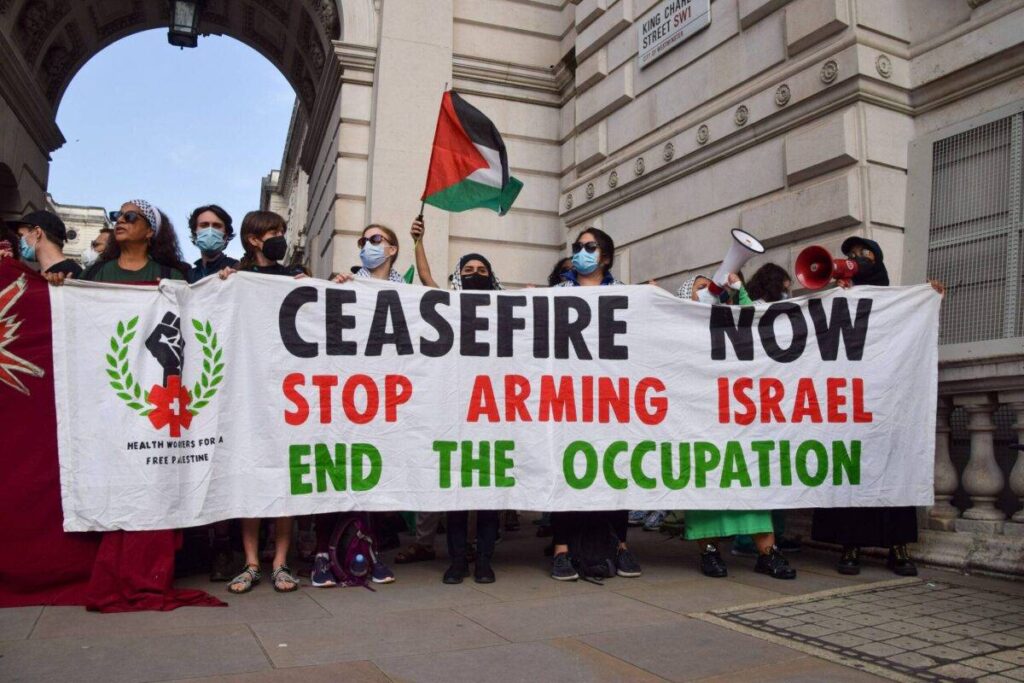


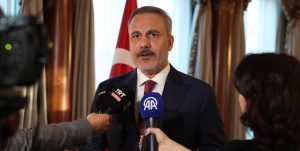








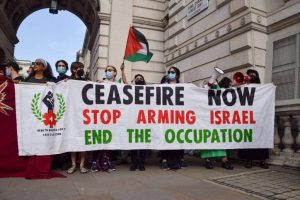
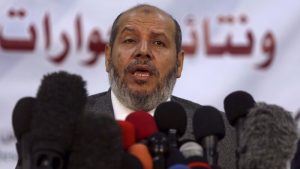
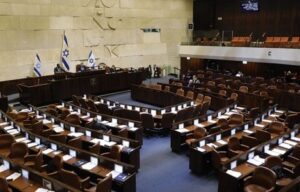








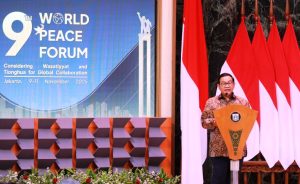





 Mina Indonesia
Mina Indonesia Mina Arabic
Mina Arabic